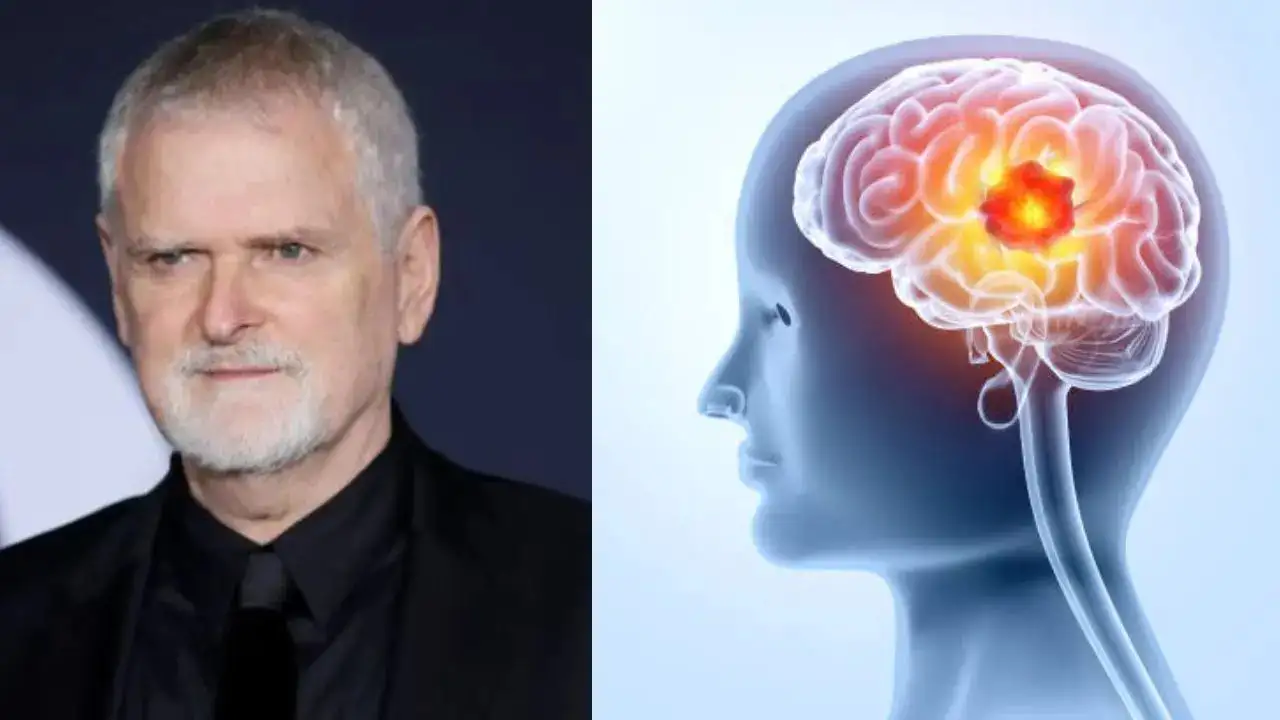Ashima Sharda Mahindra • 09 May 2025
50 Shades Director James Foley Dies of Brain Cancer; Know the Early Symptoms

Foley, who helmed Fifty Shades Darker and Fifty Shades Freed, was diagnosed with brain cancer last year (Pic: Reuters/iStock)
Hollywood filmmaker James Foley died at age 71 after battling stage 4 brain cancer. Brooklyn-born Foley, who worked with stars ranging from Sean Penn and Madonna to Al Pacino, was diagnosed with a tumour last year.
Foley, who helmed Fifty Shades Darker and Fifty Shades Freed, adapted from E.L. James‘ novels, passed away in his sleep, his family said.
What is brain cancer?
Also known as a brain tumour, the condition refers to abnormal cell growth in your brain, which can be either benign (non-cancerous) or malignant (cancerous). According to doctors, brain tumours develop directly within the brain or spread from other parts of the body.
Experts say only around a third of brain tumours are cancerous; however, whether they are cancerous or not, brain tumours impact brain function and your health if they grow large enough to press on surrounding nerves, blood vessels, and tissue. Doctors say there are over 150 types of brain tumours categorised as glial or non-glial, benign or malignant. Many types of brain tumours can also form in your spinal cord or column.
Brain tumours can affect anyone but are more common in men. According to experts, meningioma, which is usually benign, is the only type of brain tumour that’s more common in females. The most serious type of brain tumour—glioblastoma—is becoming more common among people as the general population ages.
What are the issues caused by brain tumours?
According to doctors, brain tumours, whether they are cancerous or not, cause serious issues. It happens because your skull becomes rigid and does not provide room for the tumour to expand. Also, if a tumour develops near parts of your brain that control vital functions, it may lead to symptoms like:
- Weakness
- Difficulty walking
- Balance issues
- Partial or complete loss of vision
- Difficulty understanding or using language
- Memory issues
- Bleeding in the brain
Signs and symptoms of brain tumours
Doctors say that for some people, a brain tumour does not show any symptoms, especially if it is very small. And so, the signs and symptoms vary depending on the tumour’s location, size, and type. A few of the initial signs include:
- Severe and throbbing headaches
- Seizures
- Difficulty thinking, speaking, or understanding language
- Changes in personality
- Weakness or paralysis
- Balance issues and dizziness
- Vision problems
- Hearing issues
- Facial numbness
- Nausea and vomiting
- Confusion and disorientation
What causes brain tumours?
According to researchers, brain tumours develop when certain genes on the chromosomes of a cell are damaged and no longer function properly, but they are not sure why this happens. Your DNA in your chromosomes tells cells throughout your body what to do — it tells them when to grow, when to divide or multiply, and/when to die.
When brain cell DNA changes, it gives your brain cells new instructions. Your body develops abnormal brain cells that grow and multiply faster than normal and sometimes live longer than normal. When that happens, the ever-growing crowd of abnormal cells takes over space in your brain.
In some cases, a person may be born with changes in one or more of these genes. Environmental factors, such as exposure to large amounts of radiation from X-rays or previous cancer treatment, may then lead to further damage.
In other cases, the environmental injury to the genes may be the only cause.
Get Latest News Live on Times Now along with Breaking News and Top Headlines from Health and around the world.